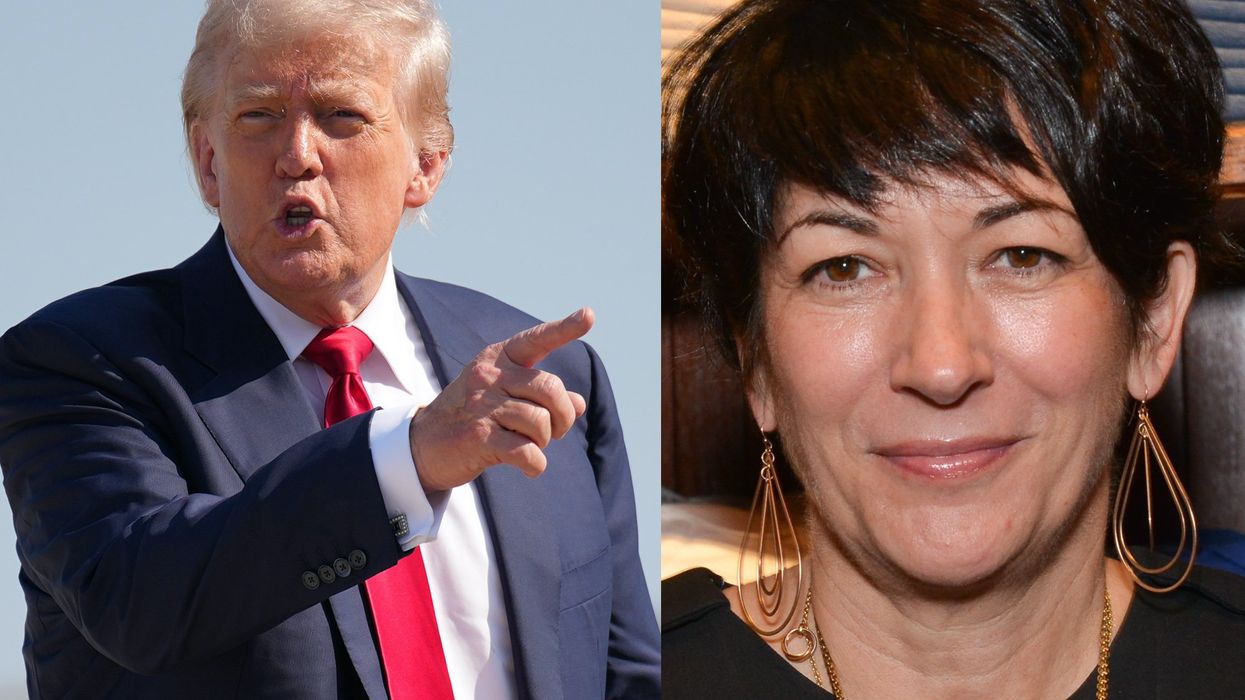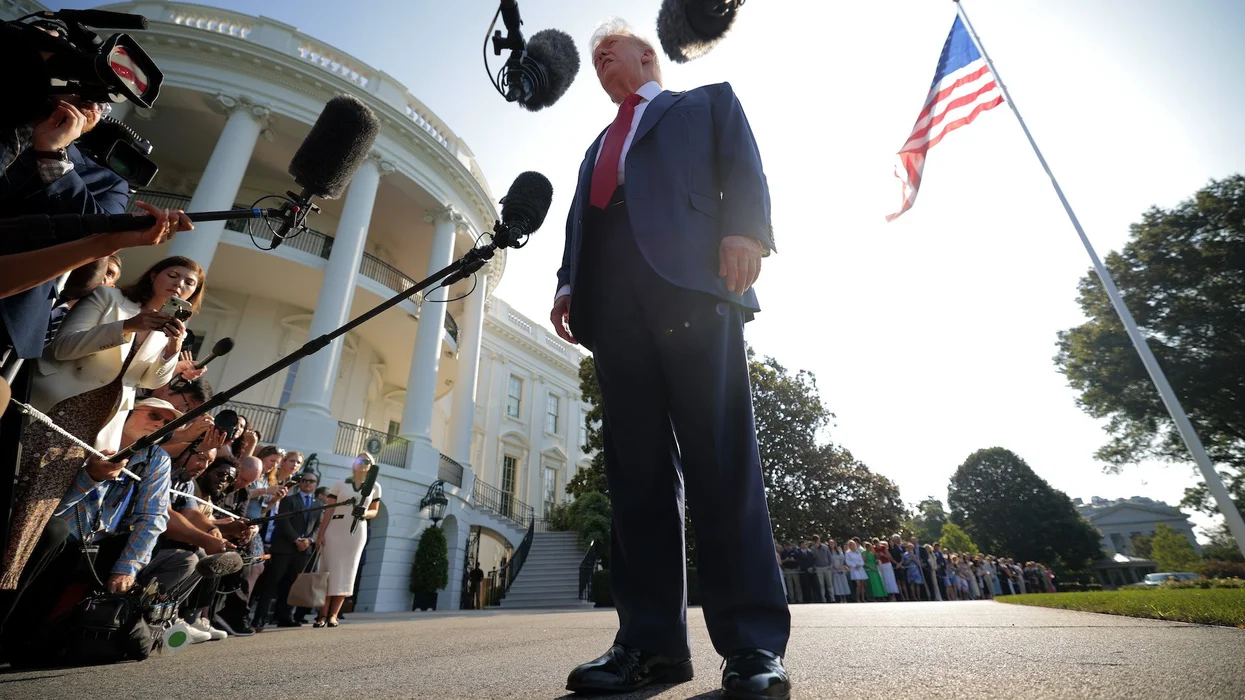Joshua DuBois, President Barack Obama's friend, confidant and the former head of the White House Office of Faith-Based and Neighborhood Partnerships, has consulted with the president for years on matters of faith and religion. This week, he released "The President's Devotional," a book of daily scripture, quotes and meditations he has sent to Obama every morning for the past five years.
Like most devotional books, there's an entry for readers to consume each day that focuses on a specific theme. From loving one's enemies to remembering the importance of Jesus Christ, each selection, while brief, provides a pointed lesson for readers (the selections begin Jan. 1 and end Dec. 31, encouraging readers to very literally work their way through the text over the course of a year).
 Credit: Harper Collins
Credit: Harper Collins
DuBois, a former Pentecostal minister who was once dubbed Obama's "pastor-in-chief," also provides short personal stories before each new month of devotionals is presented in the book.
There's no hiding the Christian themes present throughout the book. In a Feb. 12 entry, DuBois writes about the "gift" of God's son "whose sacrifice was a perfect payment for our sins." These references to Jesus are prevalent throughout the text.
We've picked out five of the most intriguing meditations. While there were 365 published options to choose from, Religion News Service reported that over the years, DuBois has actually sent Obama more than 1,500 selections.
Here are five TheBlaze is highlighting:
1) The entry for Jan. 5 titled, "He Sees in Secret," tells readers that God knows everything, not only what people speak or act out openly. This particular entry was sent from DuBois to Obama in an effort to encourage the president to allow God to guide his path.
"'He sees in secret just as well.' Into our past, our furthest pasts, the moments that shaped our character and sentiments and belief," the entry reads. "Into our present, our secret joys and hidden shames, the hopes that we cannot yet articulate, the worrisome pains we seek at all cost to avoid. Into our future: what is possible, what we're capable of, if only we stretch."
2) Politics can be a dirty and contentious sport, which is likely why DuBois regularly sent Obama verses and quotes that teach Christians how they should treat opponents. In a post for Jan. 14 titled, "Fire a Blessing," Matthew 5:43-45 is included -- a set of verses that encourages believers to love their enemies.
"Grace toward one another is our weapon. Time after time, battle after battle, we respond with is," DuBois wrote. "The enemy will win some rounds, but when we respond with God's grace, we have already won the war."
3) On Feb. 12, DuBois highlighted the power that resides in each individual human being. Considering the difficult positions that presidents often find themselves in, the message embedded inside the devotion is intriguing, particularly when considering military action, abortion, the death penalty and other life or death scenarios that politicians often comment on.
"We carry within us great authority to bring life and death into this world," the selection reads. "Today, rather than falling into the temptations and traps of Adam, let's model ourselves on our Savior and use our power to bring healing and life."
4) In addition to loving one's neighbors and being thoughtful about issues pertaining to life, DuBois sent Obama a devotion about choosing one's words wisely, titled, "When to Speak."
"We should be careful to be judicious with our words," it reads. "Our tongues have great power and are best used when they're truly needed. Until then, let's cultivate a listening spirit."
5) On June 27, an entry called "Famous" deals with personal perception and maintaining a healthy view of the self. The text warns against thinking too highly of oneself and cites Romans 12:3, a verse that instructs readers to, "Think of yourself with sober judgement, in accordance with the faith God has distributed to each of you."
The invocation at the end also encourages readers to pray, "God, I don't want to be famous; I want you to be famous."
♦ ♦ ♦
 AP
AP
But one of the most intriguing portions of the book comes not from a particular devotion, but from one of DuBois' personal stories. In it, he shared his feelings surrounding the Rev. Jeremiah Wright controversy -- a firestorm he worried would derail Obama's presidential hopes in 2008.
DuBois said that as then-candidate Obama's "faith guy," he worried that a potential Obama loss would be on DuBois' shoulders. He wrote:
"I had a short but intense history with Reverend Wright. Starting from the beginning of the campaign, I spent time in his private study and his church, getting to know him and his family. I new he was very progressive, fiery even, with a heart for mentoring black pastors around the country. But I had no idea that he had spoken the specific statements from that famous video, and I knew that Senator Obama was not aware of those remarks either."
It has of course been long debated whether Obama knew about Wright's rhetoric prior to the campaign.
DuBois went on to describe how the scandal was handled, noting the pressure he was under in the wake of Wright-inspired media coverage to draft a statement that would explain the complicated scenario to the American public.
After two aides joined DuBois in writing up an explanation -- one he admitted was initially crafted in an effort to gloss over the situation (he said it "didn't tell the whole truth, but it didn't lie"), Obama apparently read it and decided to re-write it himself, telling his aides that he'd rather tell the truth than spin the issue.
"The bottom line is, my pastor said some things I disagree with. I was a very busy man over the last few years, and I was not in church nearly as much as I should have been. I didn't hear him say those things, but that doesn't take away from what he said," DuBois recalls the president saying.
This particular portion of the devotional is noteworthy, considering the pervasiveness of the controversy. While it's only one perspective surrounding the president's former relationship with Wright, it's a fascinating lens into a key moment of the 2008 campaign.
--
[related]

 Credit: Harper Collins
Credit: Harper Collins





